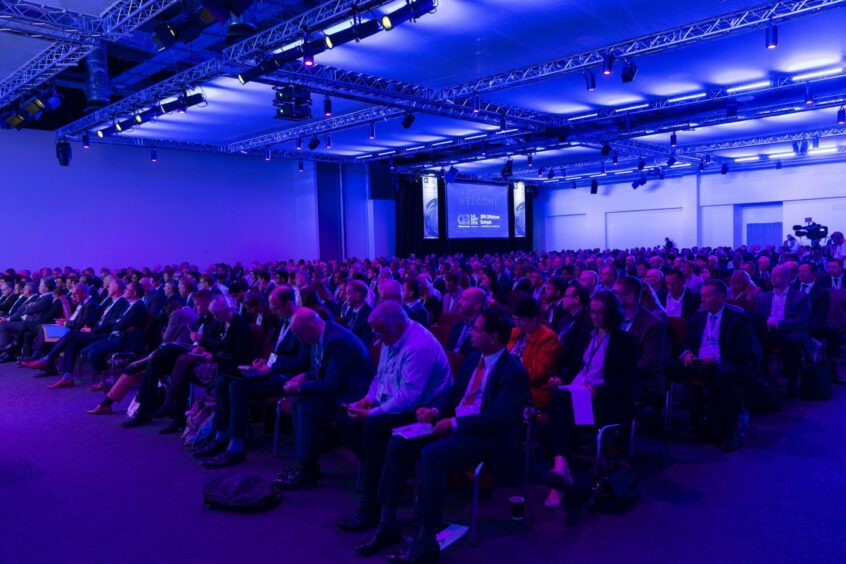
The organisers of Offshore Europe have revealed details of its growing technical programme on carbon capture and hydrogen at the sustainability-themed event.
A call for papers was launched last year ahead of the event in the Granite City, which this year celebrates 50 years since the first conference was held at Aberdeen University in 1973.
The milestone gathering of energy delegates is set to be held at P&J Live in Aberdeen from 5-8 September 2023 and will be convened under the theme of ‘Accelerating the transition to a better energy future’.
Meanwhile, the conference portion of the event will meet to tackle the challenge of ‘Securing sustainable and equitable energy for the next 50 years and beyond.’
The event will be the first in-person incarnation of the biennial conference since 2019, after a spate of delays and cancellations throughout the COVID pandemic.
Organisers SPE and Reed Exhibitions this week announced further details of the technical programme, which will see speakers grapple with some of the challenges posed by carbon capture storage (CCS) and the hydrogen economy.
This includes a paper by Petronas which discusses the possibility of repurposing existing hydrocarbon pipelines for CO2 transportation.
Meanwhile Dutch gas group Energie Beheer Nederland will set out how project design and operational philosophy hurdles were tackled on two large-scale CCS projects in the Netherlands, alongside a presentation on the finer points of storing CO2 in a depleted gas field in the Netherlands.
Boston Consulting Group will detail how combining extensive research of limestone and steel industry with CO2 storage physics can enable the acceleration of mineralisation in the reservoir from approximately 100 years to two years, rapidly accelerating the permanent CO2 storage process.
On the hydrogen front, Environmental Resources Management (ERM) is to present the results of industrial trials commissioned by the UK Government, Scottish Government and Scottish Ports to investigate the technical and commercial feasibility of exporting hydrogen from offshore wind in the North Sea by using liquid organic hydrogen carriers (LOHC) to industrial European demand centres.
Another presentation by Kent will present recent modelling work carried out supporting a Dutch North Sea operator to understand the change in risk on their production platform due to hydrogen passing through it.
The University of Aberdeen too has mapped the hydrogen storage capacities of UK offshore hydrocarbon fields and explored potential synergies with offshore wind. Its findings estimate a total hydrogen storage capacity of 3,454 TWh within 96 fields investigated – significantly exceeding the determined 120 TWh of seasonal domestic storage demand.
The paper notes that “this methodology can be applied to any region where petrophysical field data and offshore wind data are available, to provide a high-level assessment of the techno-economic potential of hydrogen storage for coupling with offshore wind generated green hydrogen.”
SPE Offshore Europe conference chairman Kamel Ben-Naceur said: “CCS and hydrogen projects and challenges will feature highly across the panel and technical sessions as stakeholders and decision makers convene to discuss, debate and make progress on the opportunities and hurdles that the energy transition presents.”
The full conference programme and registrations can be found at offshore-europe.co.uk.
Recommended for you
